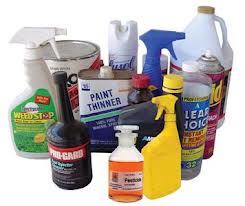
Did you know that the U.S. Environmental Protection Agency (EPA) considers a large number of household products to be hazardous? These materials are considered hazardous waste because they exhibit characteristics that can cause cancer, an explosion, a fire, or a deadly reaction if not used or stored properly. Keep reading to learn more about how to manage household hazardous waste.
Managing Household Hazardous Waste (HHW)
Encouraging people always to monitor hazardous materials and store them appropriately is important. But what happens when you don’t want or need a product anymore? Local municipalities may have collection events throughout the summer months, but these are often inconvenient or not a top priority. A qualified hazardous waste disposal and transportation company can assist you with managing your household hazardous materials at any time of the year.
How Do You Know if a Substance is Hazardous?
According to the EPA, all hazardous wastes exhibit one or more of the following characteristics:
- Ignitability
- Corrosivity
- Reactivity
- Toxicity
Read labels for more information pertaining to the hazards and cautions associated with a product before using and discarding. Also, look for warning symbols and read the list of ingredients.
What Are Examples of an HHW?
Examples of HHW can be found in many areas of the home, but are especially prominent in the kitchen, bathroom, and garage. Flammable materials, including gasoline, nail polish remover, and adhesives are typically ignitable and may catch fire easily. Many bathroom and kitchen cleaners are corrosive and contain a variety of abrasive chemicals like sodium hypochlorite (bleach) or ethanolamine (oven cleaner) which are corrosive and flammable.
Some drain cleaners contain materials that when activated emit heat and are considered reactive. A variety of pesticides and medications throughout the home are considered toxic according to the EPA, including warfarin, epinephrine, or amitrole (Weedazol weed killer).
While the immediate dangers of handling HHW improperly are not always obvious, there can be lasting effects on the environment and human health. If you have hazardous waste that you cannot dispose of via local collection events or have too much waste to be handled by your city, a hazardous waste disposal company may be your only option.
Contact Maine Labpack, Inc.
At Maine Labpack, Inc. we are available to identify and package all waste for disposal and generate necessary paperwork to reduce liability and ensure waste is properly disposed of. Have questions or need to dispose of your waste? Contact us today!
